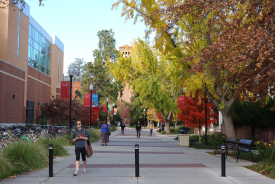Research Fraud Committed by More Than 1,000 Authors; List of Highly Cited Researchers Trimmed
ByIn the world of academia, recognition is a crucial aspect of a researcher's career. One prestigious acknowledgment that holds significant weight is inclusion in the Highly Cited Researchers list, a compilation of scholars who have demonstrated exceptional influence in their respective fields. However, the recent exclusion of over 1,000 researchers from this esteemed list has ignited controversy and prompted a broader conversation about the criteria for inclusion, transparency, and the need for a more inclusive approach.

Exclusion From the Highly Cited Researchers List
Published annually by Clarivate Analytics, the Highly Cited Researchers list aims to identify researchers whose work has had a substantial impact on their fields, as evidenced by the frequency with which their publications are cited by peers. Inclusivity in such a list is essential not only for individual researchers but also for the advancement of diverse perspectives in academic discourse.
The revelation that over 1,000 researchers were excluded from this year's Highly Cited Researchers list has raised eyebrows across the academic community. The exclusion comes despite these researchers having a considerable number of citations and making significant contributions to their fields. This has sparked concerns about the criteria and methodology employed in the selection process.
READ ALSO : How Could AI Make Education More Fun?
Calls for Transparency
Critics argue that the lack of transparency in the selection process contributes to skepticism about the reliability and fairness of the Highly Cited Researchers list. Understanding how researchers are evaluated for inclusion is crucial for maintaining the integrity of such rankings. Many are now urging Clarivate Analytics to be more transparent in disclosing the specific criteria used to determine who makes the cut.
The controversy surrounding the exclusion of over 1000 researchers also underscores broader issues related to diversity and inclusion in academia. Academic fields benefit from a variety of perspectives, and excluding a significant number of researchers may perpetuate biases in scholarly recognition. In an era that champions diversity and inclusivity, the Highly Cited Researchers list should reflect the multifaceted contributions of scholars from different backgrounds, disciplines, and regions.
For those excluded from the list, the impact extends beyond a mere absence of accolades. In academia, being recognized as a highly cited researcher can open doors to funding opportunities, collaborations, and career advancements. The exclusion of over 1000 researchers may inadvertently hinder their professional growth and limit their ability to contribute meaningfully to their fields.
Possible Repercussions on Research Funding
Researchers on the Highly Cited list often enjoy increased visibility and are more likely to secure research funding. The exclusion of a significant number of scholars could potentially redirect funding away from deserving projects, impacting the overall progress of research in various disciplines. This raises concerns about the broader implications of such exclusions on the advancement of knowledge and innovation.
As the controversy unfolds, there is a growing consensus within the academic community that the criteria for inclusion in the Highly Cited Researchers list need reevaluation. Institutions and organizations involved in compiling such lists should actively seek input from the academic community to ensure that the selection process is transparent, fair, and reflective of the diverse contributions researchers make to their respective fields.
The exclusion of over 1000 researchers from the Highly Cited Researchers list has ignited a critical conversation about the transparency, fairness, and inclusivity of such prestigious recognitions in academia. As the academic community calls for reform and greater clarity in the selection process, it is crucial to recognize the broader implications of these exclusions on individual researchers' careers, diversity in academia, and the overall progress of research. The controversy serves as a reminder that acknowledgment and recognition should be inclusive, reflecting the rich tapestry of contributions from researchers worldwide.
© 2025 University Herald, All rights reserved. Do not reproduce without permission.








